#edward abbey
Text
Our suicidal poets (Plath, Berryman, Lowell, Jarrell, et al.) spent too much of their lives inside rooms and classrooms when they should have been trudging up mountains, slogging through swamps, rowing down rivers. The indoor life is the next best thing to premature burial.
Edward Abbey
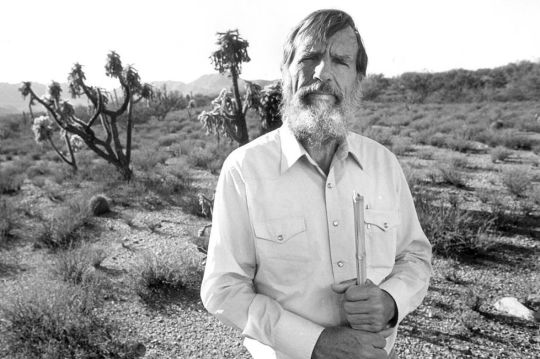
446 notes
·
View notes
Text
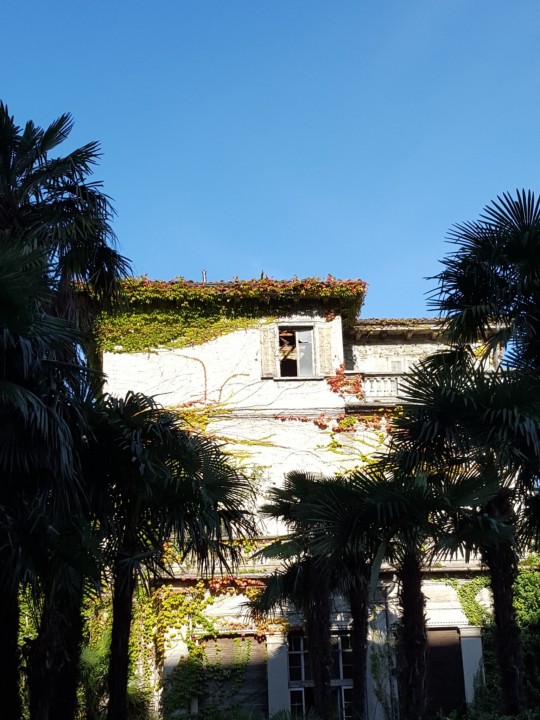
Our job is to record, each in his own way, this world of light and shadow and time that will never come again exactly as it is today.
-- Edward Abbey
(Stresa, Italy)
198 notes
·
View notes
Text
If my decomposing carcass helps nourish the roots of a juniper tree or the wings of a vulture—that is immortality enough for me. And as much as anyone deserves.
Edward Abbey
362 notes
·
View notes
Text
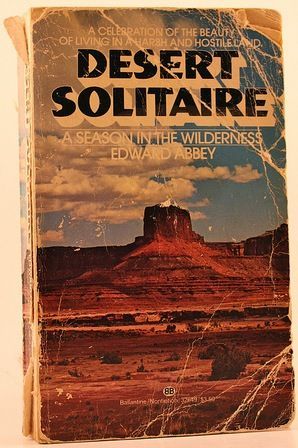
I've been reading Edward Abbey's Desert Solitaire as research for a project of mine, and it has certainly been an experience.
Desert Solitaire was one of these titles I'd heard bandied about in American nature literature growing up (the kind of thing teachers recommended once you finished Hatchet), but I don't here his work mentioned as much anymore. I recently re-encountered the title on a literal ecofascist reading list. While Abbey doesn't sound like an ecofascist himself, I can easily see why nature Nazis like him.
The book chronicles Abbey's time as a seasonal park ranger at the Arches National Monument in Utah There is a kind of uncertainty and inconsistency in the way he writes, even in the way he acts towards his surroundings in the desert. Silent Spring had only been published a few years before Solitaire was, and the eco-cultural revolution was not yet in full swing. Abbey writes lovingly about his desert environment. He describes in stunning detail, for example, the everyday beauty of a bumblebee alighting on a cactus flower, and decries the reckless "development" initiatives of the Bureau of Public Roads. But on the next page, he will say something like this:
"...it's a foolish, simple-minded rationalism which denies any form of emotion to all animals but man and his dog. This is no more justified than the Moslems are in denying souls to women."
Sure dude.
Okay, fine, he was writing in the sixties. Some insensitivity is par for the course. But then, after pages and pages of decrying humans driving desert flora and fauna towards extinction, he describes with glee an instance where he stones a rabbit to death for no apparent reason.
It's a bizarre passage, and shows Abbey at his most unhinged. He describes the rabbit as "cowardly" for running away from threats, unlike the brave mountain lion, who stands and fights. He throws the stone and hits the rabbit's head:
"He crumples, there's the usual gushing of blood, etc.," and the creature is dead.
"I continue my walk with a new, augmented cheerfulness which is hard to understand but unmistakable [...] I try but cannot feel any sense of guilt."
Reflecting on the incident, he concludes that his killing of the rabbit has made him a part of the desert, a membership bought by killing or being killed, being "predator or prey". Even so, he decides not to eat the rabbit, which he says is probably diseased anyway.
He also describes using his walking stick to crush and stir up an ant colony, also without any reason beyond not liking ants.
"Don't actually care for ants. Neurotic little pismires."
These are far from the only times that Abbey violates his personal philosophy of reverence for all living creatures.
It's clear that Edward Abbey came to Arches National Monument already dissatisfied with the outside world, and with some authority issues to boot (some quick googling on his background shows two demotions as a military police officer for clashing with higher-ups). The freedom of the desert, its simplicity and balance, is a significant part of what makes it appeal to him. But its harshness, the hostility of its sandstorms and lurking rattlesnakes, draws him in just as much.
Edward Abbey is not an ecofascist. If anything, his ill-defined political beliefs can be vaguely defined as anarchistic, if they can be defined at all. Deleuze and Guattari write in A Thousand Plateaus that fascism is "a cancerous body rather than a totalitarian organism". It is fluid, mutable. Sometimes it lies latent, benign; at other times it rushes outward, colonizing piecemeal and erratically, in "flows capable of suffusing every kind of cell". Elements of Abbey, and of Desert Solitaire, contain such microfascisms.
Let's turn back to the linchpin of it all: the killing of the rabbit, which he sees as a joyous, cosmic act; one that links him into a (circular? pyramidal?) chain of being he was previously alienated from, in the atomized world of civilization. His joy is only augmented when he realizes he is not guilty for killing the rabbit. In per-modern hunting customs across the world, the taking of animal life is never free and unmediated. Thanks may be given to the spirit of the animal itself, or to the unseen powers that led the hunter to their quarry. Naturally, the sacrifice of an animal to a god was just that: for a god, not the human involved. What Abbey describes in the killing of the rabbit is something utterly different.
In Federico Finchelstein's Fascist Mythologies, Finchelstein says that in fascism,
"consciousness was not a repression of inwardness (as Freud understood the workings of the Ego and the Id) but its actual distillation. [...] [Fascist consciousness] was not contemplative but similar to that of a sublime sensation of ecstasy."
The fascist subject is most "conscious" precisely when they loose themselves in the ecstatic abandon of the act. Such fascist consciousness is the foundation of the free, easy violence it facilitates.
When Abbey describes casting the stone at the rabbit, it is in a Meursault-like twilight of awareness. He sets up the encounter as a game, one in which he is a scientist experimenting on a rabbit that has been "volunteered" to him, and whose death is justifiable through its natural cowardice. He hardly realizes that the action he is carrying out, and when the rabbit dies he is shocked out of his reverie for a moment.
"For a moment I am shocked by my deed [...] but shock is succeeded by a mild elation."
For Abbey, primordial violence is what at last allows him union with the sacred world of the desert.
"No longer do I feel so isolated from the sparse and furtive life around me, a stranger from another world. I have entered into this one. We are kindred all of us [...] Long live diversity, long live the Earth!"
By carrying out this act of bare violence, Abbey frees himself from the civilized world and achieves union with the world of Nature, in which violence is a simple act: one that creates its own order rather than supporting existing ones. It is this union that, while the moment lasts, allows him to rejoice in his newfound "innocence and power".
That is where I will leave things for now. There are other, more overt themes that Abbey explores that are the chief reason Desert Solitaire appeals to many ecofascists, such as its characterizations of industrial society and "Progress". Abbey's later work, such as The Monkey Wrench Gang, set even more explicit examples of direct action and sabotage that inspired right-wing accelerationists as well as left-wing environmental activists. This is my first long-ish post; if you're interested in these kinds of posts on ecofascism and ecocriticism, let me know and I might make more in the future.
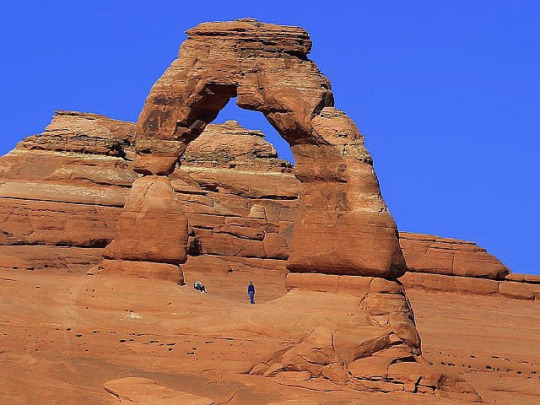
287 notes
·
View notes
Text
Anarchism is not a romantic fable but the hardheaded realization, based on five thousand years of experience, that we cannot entrust the management of our lives to kings, priests, politicians, generals, and county commissioners.
- Edward Abbey

#Edward Abbey#leftist quotes#book quotes#quotes#161#1312#anarchism#quoteoftheday#book quote#life quote#beautiful quote#quote#quotable#class war#ausgov#politas#auspol#tasgov#taspol#australia#fuck neoliberals#neoliberal capitalism#anthony albanese#albanese government#eat the rich#eat the fucking rich#fuck the police#fuck the supreme court#fuck the patriarchy#fuck the gop
98 notes
·
View notes
Text
Nessuna tirannia è così irritante come la piccola tirannia delle richieste ufficiali dei poliziotti, degli impiegati governativi e dei dispositivi elettromeccanici.
(Edward Abbey)
33 notes
·
View notes
Text
Anarchism is founded on the observation that since few men are wise enough to rule themselves, even fewer are wise enough to rule others.
—Edward Abbey, A Voice Crying in the Wilderness
73 notes
·
View notes
Text

“In the land of bleating sheep and braying jackasses, one brave and honest man is bound to create a scandal.”
Edward Abbey
79 notes
·
View notes
Text
The love of wilderness is more than a hunger for what is always beyond reach; it is also an expression of loyalty to the earth, the earth which bore us and sustains us, the only paradise we shall ever know, the only paradise we ever need, if only we had the eyes to see.
Edward Abbey
#book quotes#nature quotes#edward abbey#walking in nature#the wild#wilderness#literary quotes#literature#books and libraries
151 notes
·
View notes
Text
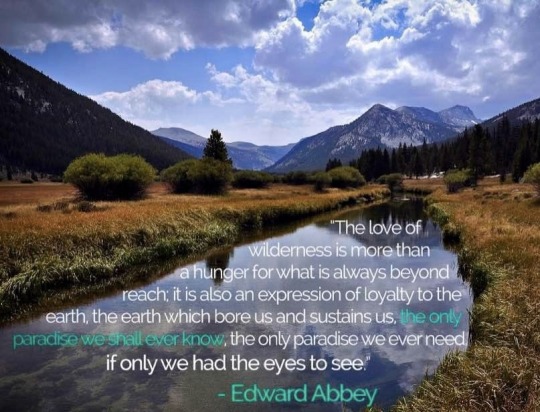
32 notes
·
View notes
Text
The personification of the natural is exactly the tendency I wish to suppress in myself, to eliminate for good. I am here not only to evade for a while the clamor and filth and confusion of the cultural apparatus but also to confront, immediately and directly if it's possible, the bare bones of existence, the elemental and fundamental, the bedrock which sustains us. I want to be able to look at and into a juniper tree, a piece of quartz, a vulture, a spider, and see it as it is in itself, devoid of all humanly ascribed qualities, anti-Kantian, even the categories of scientific description. To meet God or Medusa face to face, even if it means risking everything human in myself. I dream of a hard and brutal mysticism in which the naked self merges with a non-human world and yet somehow survives still intact, individual, separate. Paradox and bedrock.
Edward Abbey
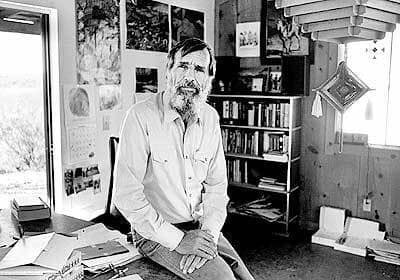
84 notes
·
View notes
Text
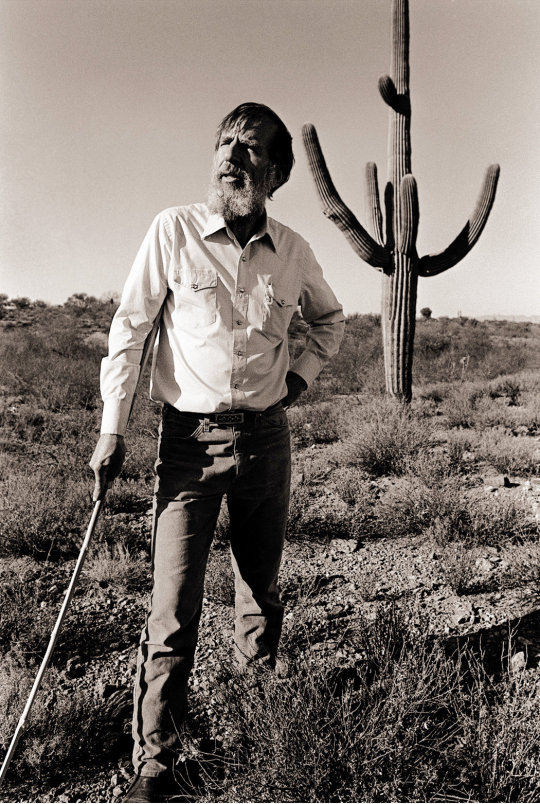
48 notes
·
View notes
Text
Growth for the sake of growth is the ideology of the cancer cell.
Edward Abbey
#quotes#edward abbey#growth#cancer#anarchy#anarchist#anarchism#socialism#communism#economics#capitalism#anticapitalism
139 notes
·
View notes
Text

Walking makes the world much bigger and therefore more interesting.
-- Edward Abbey
(Bistrita, Romania)
#walking#streets#life#world#edward abbey#travel photography#street photography#quote#bistrita#romania
197 notes
·
View notes
Text
"Water, water, water....There is no shortage of water in the desert but exactly the right amount , a perfect ratio of water to rock, water to sand, insuring that wide free open, generous spacing among plants and animals, homes and towns and cities, which makes the arid West so different from any other part of the nation. There is no lack of water here unless you try to establish a city where no city should be."
— Edward Abbey, Desert Solitaire: A Season in the Wilderness, 1968
#Edward Abbey#literature#american literature#spilled ink#quotes#book quotes#excerpts#book excerpt#lit#books#books and libraries#prose#quote#water#desert#20th century#1960s
19 notes
·
View notes
